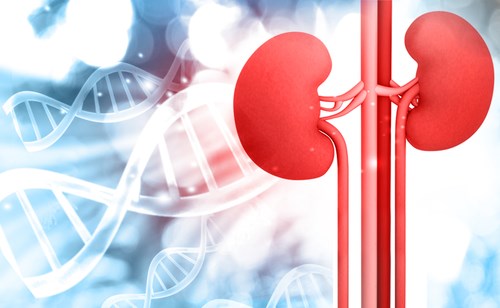
‘HIDDEN’ is one of two renal genomics studies led by Australia’s KidGen Collaborative and supported by Australian Genomics.
The clinical flagship will from this month, begin the process of referral and recruitment of patients to its research study, providing whole genome sequencing to 200 adults and children with end-stage kidney disease of unknown cause.
End-stage kidney disease is a disease stage where a person’s kidneys no longer function sufficiently and potential treatment with life-sustaining renal replacement therapies, such as dialysis or a kidney transplant is necessary. End-stage kidney disease of ‘unknown cause’ describes those without a definitive clinical diagnosis for their kidney disease, despite an overwhelming excess burden of morbidity and mortality that these patients experience. For many of these patients, the traditional diagnostic avenues have been exhausted and this odyssey has an enormous impact on these individuals and their families.
“Unknown cause for those with end-stage kidney disease not only signals a patient has experienced a prolonged diagnostic journey to no avail, it also means that without a clinical diagnosis, options for treatment, or managing personal and familial genetic risk are really limited,” said A/Prof Andrew Mallett, National Director of the KidGen Collaborative, Royal Brisbane and Women’s nephrologist, and lead of the HIDDEN flagship. “We really have no genetic or genomic referral pathway for patients who fall into this ‘unknown’ category. We want to alter this course and open up options for improved clinical management for these patients.”
The KidGen Collaborative HIDDEN flagship will provide whole genome sequencing to eligible patients in an effort to reach a genetic diagnosis for their kidney disease.
This study is one of only a few worldwide, sharing similar methods and partnerships with renal genomics studies in both England and New Zealand. These studies aim to break new ground in kidney disease diagnosis and add to an emerging evidence base on the effectiveness of genomic techniques in nephrology.
“Clinical sites, like ours here at the Royal Prince Alfred Hospital, will be taking referrals from treating clinicians via a nomination process, and then reviewing these via our national and expert flagship committee,” said Dr Amali Mallawaarachchi, nephrology specialist and clinical geneticist at Royal Prince Alfred Hospital, genomics researcher at Garvan Institute of Medical Research and co-lead of the HIDDEN flagship. “We then have multidisciplinary teams in place locally to establish if genome testing will be appropriate for each patient and then proceed with patient enrolment. This process will be mirrored across sites in Australia, with DNA samples being sent to Garvan here in NSW for testing.”
While the HIDDEN study aims to assess the diagnostic utility of whole-genome sequencing for end-stage kidney disease of unknown cause, it is also undertaking secondary evaluations of cost-effectiveness and implications for pharmacogenomics. The Flagship is also participating in an Australian Genomics pilot study offering research participants the opportunity to provide their consent, and manage their ongoing involvement in this research, via an online, personalised consent platform.
“This HIDDEN genomics study is really quite exciting for its potential to solve what has previously been unsolvable. The impact of kidney disease on individuals and families is profound, and we’re eager to see the outcomes of this study – not only in terms of the impact it has for those who are battling unexplained kidney disease, but the opportunity it presents to improve clinical practice in this area,” said Dr Lisa Murphy, CEO of Kidney Health Australia and partners of the KidGen Collaborative and HIDDEN study.
For information on HIDDEN and the study’s participating clinical sites, please refer to www.kidgen.org.au. You can also view all those involved in the KidGen collaborative on their website.
Kidney Health Australia offers information and support to both health professionals and the community on kidney health and disease. Connect with Kidney Health Australia at www.kidney.org.au.
The KidGen HIDDEN Renal Genetics Flagship is led by:
A/Prof Andrew Mallett
Royal Brisbane and Women’s Hospital
Dr Cathy Quinlan
The Royal Children’s Hospital
Dr Amali Mallawaarachchi
Royal Prince Alfred Hospital
Garvan Institute of Medical Research
Dr Cas Simons
Murdoch Children’s Research Institute
A/Prof Zornitza Stark
Victorian Clinical Genetics Services & The Royal Children’s Hospital
Dr Chirag Patel
Genetic Health Queensland

